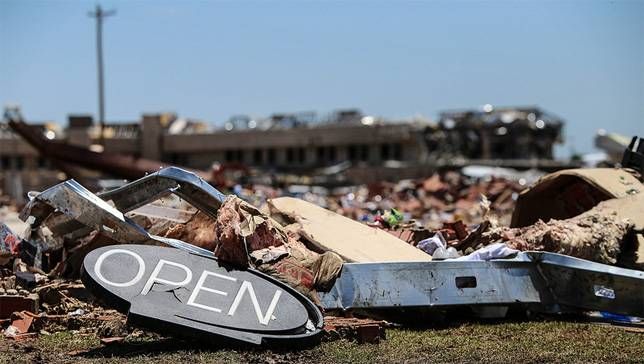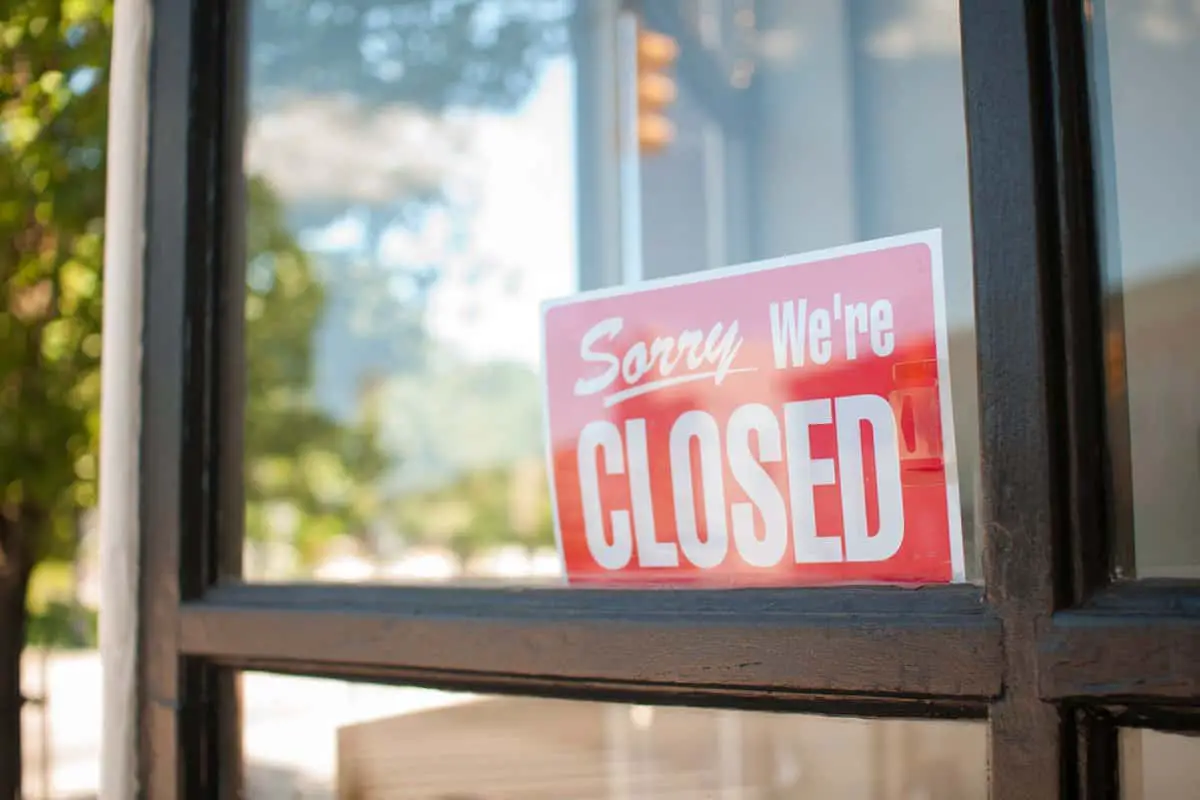Businesses can face many disasters that can seriously affect their company, customers, finances, and performance. Corporate crises can occur anytime and anywhere, especially after the covid-19 pandemic. Therefore, companies have their crisis management strategies to help them out in the hour of need.
But, let’s talk about before Covid-19, 69% of leaders in research admit that they faced at least one disaster in 2014-2019. One of the main reasons why company faces them is because they are not ready mainly. Other factors include changing the economy, new competition, and internal factors of a company. Due to small factors leading to business disasters, 62% of companies have made their strategies
One of the main reasons why company faces them is because they are not ready mainly. Other factors include changing the economy, new competition, and internal factors of a company. Due to small factors leading to business disasters, 62% of companies have made their strategies .
.
Such events become examples for other companies on a global level of what to do and not to do. So, here are five examples of disasters your business could face, and how you can prepare for them.
Top 5 Examples of Disasters your Business Could Face:
The crisis is no news for small businesses in these tough times when the economy is suffering and still recovering. The global pandemic was one of the biggest factors that caused global disasters even for the top companies on the chart.
Companies sales started to drop by 27% till January 2021 but got another drop of 45% between April to September . These are the statistics of through-based surveys by the World Bank experts of 2021. And, many factors are leading to this situation. But, when there is a problem, there is also a solution.
. These are the statistics of through-based surveys by the World Bank experts of 2021. And, many factors are leading to this situation. But, when there is a problem, there is also a solution.
To increase performance, and ensure that your business is safe from disasters, here are some tips for you.
1. Financial Crisis
When a company’s assets lose value and it becomes impossible to pay off its debt, a financial crisis occurs. A considerable decline in demand for the product or service is usually the reason for this. The business must reallocate funds to satisfy immediate short-term expenses, in these situations. Then they’ll have to rethink their revenue streams. It is important to find new ways to produce long-term revenue while also improving margins.
You will need financial disaster recovery planning in place to prevent this crisis from arising. You can start by diversifying revenues, stocking away money, managing your debt, keeping inventory stocks low, and reducing all expenses.
in place to prevent this crisis from arising. You can start by diversifying revenues, stocking away money, managing your debt, keeping inventory stocks low, and reducing all expenses.
2. Technology Crisis
In today’s world, businesses rely largely on technology to carry out their daily operations. As a result, when that technology fails, they have a lot more to be concerned about than a few lost emails. Typically, a technology disaster will disrupt access to essential resources. Such as data or the ability of staff to function efficiently. If the servers go down, you could lose a lot of prospective leads.
will disrupt access to essential resources. Such as data or the ability of staff to function efficiently. If the servers go down, you could lose a lot of prospective leads.
If this happens, immediately contact your IT or tech provider to remedy the problem. Your first concern should be to keep the problem from spreading to other clients.
Once your systems are up and running again, work with your internal resources. You need to figure out what went wrong and put in place measures to prevent it from happening again.
3. Natural Disaster
Natural disasters are often unpredictable and unpreventable, occurring from an environmental factor. This crisis type could occur from wind damage from storms or flooding from prolonged heavy rainfall.
Being proactive when dealing with natural disasters is the best way to go. You should check with your property’s insurance policy. One must know whether the property is under coverage by weather damage from environmental disasters like rainstorms.
like rainstorms.

If your workplace has a sturdy structure and has coverage of natural disaster insurance, then there is nothing to worry about. There are a lot of places where bad weather is common, maybe tornados or floods. So, you have to be smart about that as you cannot shift your business without a proper budget. So, you can prevent a disaster by getting full insurance and keeping your data safe.
4. Confrontation Crisis
When employees decide to fight amongst each other, a confrontation crisis comes to light. Employees disagree with one another and eventually resort to non-productive actions such as boycotts, extended strikes, and so on. A confrontation crisis could arise in several other ways too. A disagreement among senior executives may escalate out of control, or public dissatisfaction with your company may culminate in a public outcry.
Validate the worries of those who are facing you before dealing with a confrontation situation. It’s critical to acknowledge that if they’ve been led to this stage, the problem must be serious. Then, if the parties have issued any demands, go over them thoroughly.
At such times, the CEO and stakeholders must have a meeting. They should go over the matter thoroughly and govern the situation. A lot of companies make the mistake of leaving the matters on managers. But, confrontation crisis is a common thing and can only lead to solutions when the upper management takes a decision. Getting bad publicity can put a long-term threat on your business. So, do everything you can in your power to ensure every confrontation crisis resolves internally.
is a common thing and can only lead to solutions when the upper management takes a decision. Getting bad publicity can put a long-term threat on your business. So, do everything you can in your power to ensure every confrontation crisis resolves internally.
5. Malevolence Crisis
When some renowned employees use illicit actions and extreme measures to meet their demands, organizations face a malevolent issue.
When dealing with a malevolence issue, you need to prepare yourself. First ensure the safety of your staff and customers before addressing the perpetrators through legal methods, if possible.
And there you have it – 5 examples of disasters that every business might face, along with some helpful tips on how to prepare for them.
Crisis management is the key to your business growth:
Crisis/disasters are a part of business and we have understood it from this article. And, now you are also familiar with the common types of disasters a business could face. So, your next step would be to make your crisis management strategies for these disasters. Having an effective strategy will save you time and money in the future. Even if you are a big multinational company or just a small start-up disasters won’t knock on your door and ask for permission.
You have to research and make up all of the future scenarios. Do a meeting with all the employees and plan out each of them that how to respond or what to do. Working on this beforehand will give you the edge to survive even in the toughest times. Not every business goes down in a time of crisis and why is that? They are ready with their crisis strategies to maintain their reputation, customer experience, and revenues.
The importance of crisis/disaster management strategies for businesses?
62.37% of companies have a crisis management plan already. But, many of them do not guide these strategies to their employees. While hard work is the key to success, being smart now gives you an edge in the business world. Without having a strategy, you are more likely to make mistakes. And, they are going to cost you time and money on a great level. Plus, you are 100% at risk all the time without having a backup of disaster management strategies.
already. But, many of them do not guide these strategies to their employees. While hard work is the key to success, being smart now gives you an edge in the business world. Without having a strategy, you are more likely to make mistakes. And, they are going to cost you time and money on a great level. Plus, you are 100% at risk all the time without having a backup of disaster management strategies.
But, sometimes, you are not ready for every potential strategy. And, that’s okay! But, what you can do here is make all kinds of scenarios and discuss them with each other. It won’t cause any expense, just some research, and meetings. Such strategies are vital for the survival of any business . They will help out in both external and internal matters evolving with every unique condition.
. They will help out in both external and internal matters evolving with every unique condition.
We must not forget while these strategies help in disasters, they also help in the growth of a business. You will see improvement in communication and nurturing relationships in every department. So, every dimension of crisis management strategies helps you to be more competitive and strong.

